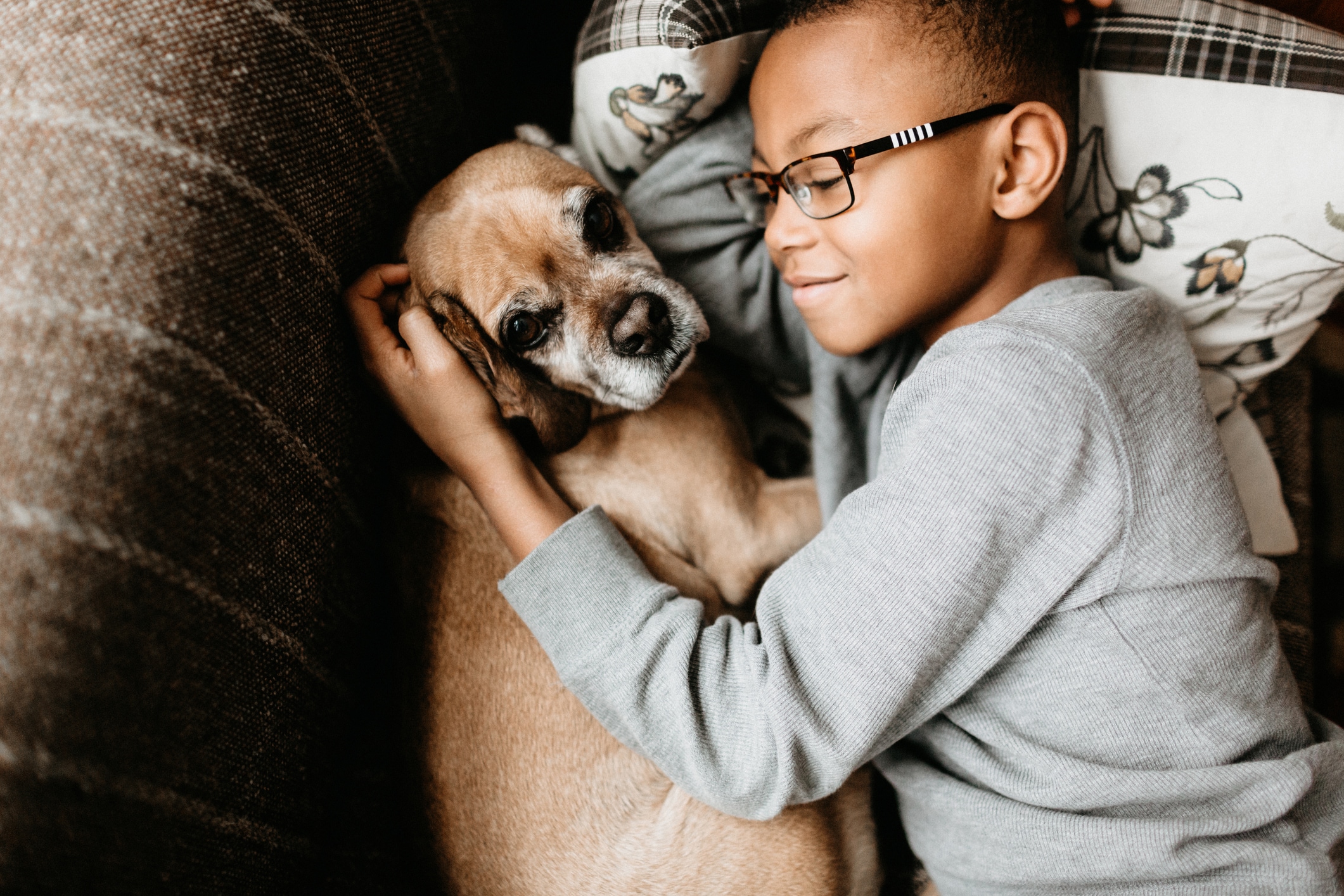“If you think you’re enlightened, go spend a week with your family” is one of the most searingly honest quotes from the American spiritual teacher Ram Dass, and it’s obvious why. Families have the ability to push buttons like no other — particularly during the holidays when most people are stressed, exhausted and forced to spend time with some of our maybe not-so-favorite relatives. While toxic family members can come in a number of shapes and sizes — the father-in-law who constantly needs to be the center of attention, the drama-loving cousin, the passive-aggressive aunt — ultimately, they’re united in one goal: to make the holidays far from festive.
“Wrecking holidays is basically a sport for toxic people,” says Sherrie Campbell, a licensed psychologist and author of “But It’s Your Family: Cutting Ties With Toxic Family Members and Loving Yourself in the Aftermath.” “It allows them the opportunity to be in a group setting where they can exact emotional control and make sure that the holiday is ruined — particularly if the attention isn’t on them. And the bigger the group of people, the more fun the manipulation is for them.”
Making matters worse is the fact that you already may be at a disadvantage because being outside your physical or emotional comfort zone can make you more vulnerable.
“No matter how far you’ve come or how much you’ve evolved, people often fall back into old family roles during the holidays, which can lead to conflict,” says Diane Dreher, license psychologist and author of “Your Personal Renaissance.” “Even if you’re a successful professional in your 30s, if your mother talks down to you when you visit her and treats you like a child, you may still find yourself trying to earn her approval.”
And, finally, there’s social media. Scroll through Instagram or Facebook during the holidays, and no doubt you’ll see photo after photo of smiling families, perfectly browned turkeys and relaxing fireside games of Scrabble. Where are the arguments? The burnt birds? Uncle Dave’s alcohol-induced political rampage? Most of us know that social media is just a highlight reel of people’s lives. But, still. It can hurt.
“There is a cultural expectation that the holidays should be as happy as a Hallmark card — or, to modernize it, [as happy as] Instagram,” says Jill Weber, psychologist and author of “Toxic Love.” “But many people have negative feelings regarding family, and there’s a good chance those feelings are going to surface over the holidays. The tension between perhaps not feeling so happy on the inside and having to put on a happy face — for family members or Facebook — often causes emotions to surface in dramatic and conflict-laden ways.”
You may not be able to change how others act during the holidays (or, you know, adopt another family), but there are things you can do to mitigate uncomfortable encounters with relatives.
Here are nine expert tips on how to deal with toxic family members during the holiday season … because it’s not the most wonderful time of year for everybody.
1. Minimize idle time
If cocktail hour is often the time your father-in-law gets in his first dig, try to put his attention elsewhere.
“Suggest something new,” says Dreher. “For instance, instead of sitting around waiting for snide comments to be lobbed in your direction, bring a jigsaw puzzle or game to work on together, which can be a great distraction from negative dynamics.”
2. Don’t be caught off guard
Having a positive outlook can be useful, but it’s probably not a good idea to go into the holidays blindly optimistic. For instance, if, historically speaking, your cousin has always competed with you and tossed passive-aggressive insults your way, be prepared. Know that you’re going to excuse yourself when she asks why your hair looks “different.” Or change the subject. Or kill her with kindness! Just have a plan in place, so you don’t find yourself out to sea without a raft, so to speak.
“Be aware of your triggers beforehand, as well as the manipulative games certain family members play,” says Campbell. “Strategize ways to give these people the least amount of emotional attention or reaction, which is what toxic people thrive on most.”
“Be aware of your triggers beforehand, as well as the manipulative games certain family member play. Strategize ways to give these people the least amount of emotional attention or reaction, which is what toxic people thrive on most.”
—Sherrie Campbell, licensed psychologist and author
3. Increase self-care
“Instead of just getting through the holidays, have a few ways to take care of yourself when you’re spending time with dysfunctional family members,” says Weber. “Make sure you have a good friend you can text with each night, take a yoga class, book a massage, take an extra long bath, have a gripping novel handy. Any activity that is separate from your family and is nurturing will help you feel more relaxed and better able to deal with the situation.”
4. Protect your (actual) holiday
“One of the healthiest strategies for dealing with family drama during the holidays is to protect your actual holiday if you can,” says Campbell. “Try to keep Christmas or Thanksgiving to your nuclear family only on the actual day — so long as everyone in your nuclear family has generally healthy relationships — and try to see toxic family members for a dinner here or there before or after the holidays.”
5. Stay away from politics
“Discussing political views with family members will almost always ruin a holiday,” says Dreher. “These days, with so much political polarization, political arguments can destroy any holiday cheer.”
And even if you think you’re in the company of like-minded people, it still may be a good idea to hold your tongue during the festivities.
“I made the mistake of bringing up the election a few years ago — I’ll never do that again!” says Justin McAfee, of Hartford, Connecticut. “I kind of thought my cousin and I were on the same political page, but turns out, we’re not. It made the rest of the day completely awkward.”
6. Contain your upset
The one thing you should never be without during dysfunctional family holidays? A notebook.
“Try not to constantly remind yourself what’s annoying you and what you wish was different,” Weber says. “This will only fill you with more negative emotion. Instead, when you catch yourself in these negative thought spirals, pull out a journal and write whatever comes to mind for 10 minutes, then close the book. When negative thoughts come up again, remind yourself that you will have your 10 minutes of journal time the next day. This contains the upset so it doesn’t bleed into all of your experiences.”
7. Change up the logistics
You may not be able to do anything about your brother-in-law’s baiting political commentary, but you do have some control over the “where” of everything.
“If staying in your parents’ house makes you feel like an unhappy child again, consider staying in a nearby hotel. You can use the excuse that you ‘need to get some work done,’” says Dreher. “By doing this, you also have more control over how much time you spend with everyone. Additionally, if Uncle Joe or Aunt Betty always gets on your nerves, try to arrange meeting them in a larger group instead of individually, or sitting far away from them at the table.”
Also, take into account how you arrive to your destination.
“I hated having my parents pick my husband, kids and me up from the airport when we came back for the holidays,” says Jana Smith, of San Diego, California. “I felt like a child! A friend of mine suggested getting to town a day earlier, doing a little sightseeing on our own and then making arrangements to arrive to their house on our own terms. It made me feel like I had more control and like I wasn’t a 12-year-old sitting in the back seat of their van.”
“When you catch yourself in these negative thought spirals, pull out a journal and write whatever comes to mind for 10 minutes, then close the book. When negative thoughts come up again, remind yourself that you will have your 10 minutes of journal time the next day.”
—Jill Weber, psychologist and author
8. Take a mindful moment
Whenever possible, excuse yourself from the chaos in order to ground yourself.
“When you find yourself getting stressed, take a mindful moment,” says Dreher. “Pausing to take a few deep breaths will help minimize the stress reaction.”
Dreher also recommends having a word or phrase handy for when you need to get centered, explaining, “When Aunt Nelly criticizes your job or your hairstyle, pause, take a deep breath and repeat your mantra silently — something like ‘peace’ or ‘it doesn’t really matter’ — then disengage from the conversation.”
9. Protect the kids — but be realistic
Ideally, your interactions with toxic family members around the holidays won’t take place in front of your kids. But, as anyone who’s been pushed to their limit knows, that’s not always a realistic option.
“Children should be protected from seeing communication with toxic relatives, but unfortunately, such interactions often happen in front of the kids,” says Campbell. “When that occurs, the best thing for kids to see is their parents standing up for themselves and setting healthy boundaries. When they see this, they learn to do that for themselves. Afterwards, parents should explain to their kids why they got reactive and why they set boundaries.”
Also, as tempting as it may be to badmouth a toxic relative, don’t.
“Don’t let kids in on the toxicity by talking about specific dynamics or speaking of a relative in a negative way in front of [them],” says Weber. “Children feel safe when they know their parents are able to manage things appropriately, so reassure them you’re OK and feel confident dealing with the situation.”
10. Keep things in perspective
There’s no doubt about it: The holidays can be a drag sometimes. But keep in mind, all this “togetherness” is only temporary.
“Try to keep things in perspective,” says Weber. “Remind yourself that family holidays can be notorious for exacerbating bad behavior in some people, and what you’re experiencing now isn’t necessarily a part of your everyday life. As hard as they may be, they’ll pass in a few days’ or weeks’ time, and you will be back to your life as usual.”
Lastly, if unhealthy relationships with relatives and negative holiday interactions continue to affect your life after the whirlwind is over, consider speaking with a mental health professional.





